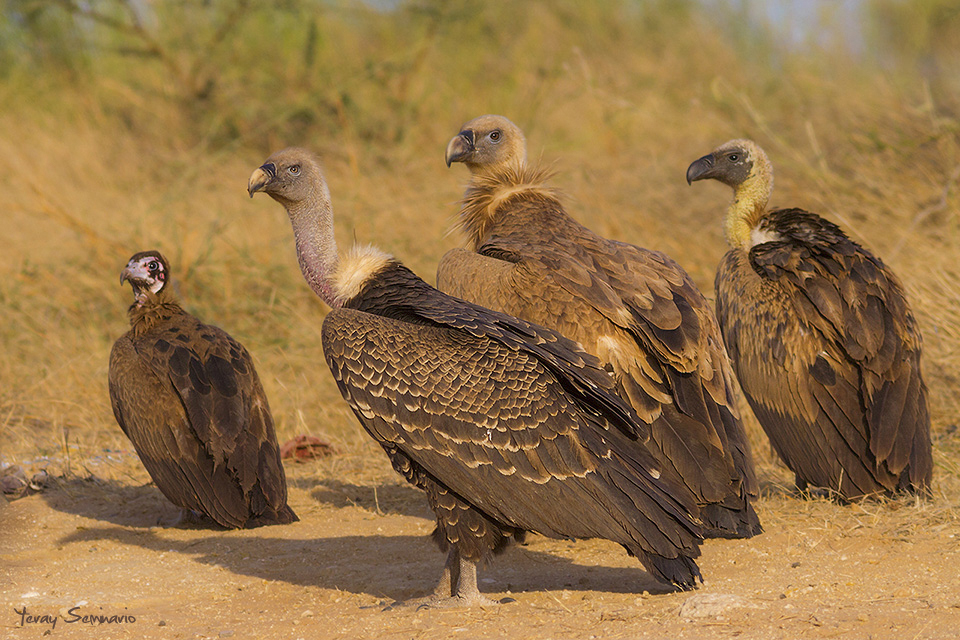The Senegal Bird Atlas is an initiative of the Cheikh Anta Diop University in Dakar, with the support of the African-Eurasian Migratory Landbird Action Plan (AEMLAP). The project is a first for a French speaking country in Africa and...
The Senegal Bird Atlas is an initiative of the Cheikh Anta Diop University in Dakar, with the support of the African-Eurasian Migratory Landbird Action Plan (AEMLAP). The project is a first for a French speaking country in Africa and an integral part of the Africa Bird Atlas Project.
The Senegal Bird Atlas project was launched at the Cheikh Anta Diop University, Dakar on November 20th, 2023. The launch brought together various stakeholders including Cheikh Anta Diop University, Switzerland Ornithological Institute, Senegal National Parc Direction (DPN), Senegal Community Marine Protected Areas Department (DAMCP), Nature Communauté et Développement (BirdLife Partner in Senegal), Wetlands International Africa, Ligue pour la Protection des Oiseaux(LPO), Senegal Ecological Monitoring Center (CSE), Senegal Department of Water and Forests, Hunting and Soil Conservation (DEFCCS) and the University Gaston Berger of Saint-Louis (UGB).
The Senegal Bird Atlas is an initiative of the Cheikh Anta Diop University in Dakar, with the support of the African-Eurasian Migratory Landbird Action Plan (AEMLAP). The project is a first for a French speaking country in Africa and an integral part of the Africa Bird Atlas Project.

Hooded, Eurasian Griffon, Rupell’s Griffon and White-backed Vultures, Senegal, copyright Yeray Seminario
Africa boasts great avian diversity, with more than 2400 bird species, including more than 1300 species in West Africa. Senegal’s geographical location offers a diversity of ecosystems that are important for the conservation of biodiversity, particularly birds, ranging from seabirds to forest birds and savannah birds.
The project will be developed in collaboration with local stakeholders such as the various departments of the Ministry of the Environment, Sustainable Development and Ecological Transition, civil society associations, ornithologists’ clubs, protected area eco-guards and ecotourism guides, as well as international organizations.
According to Dr Ngoné Diop, a research professor in the Department of Animal Biology at Cheikh Anta Diop University and co-initiator of the project, “an Atlas of African Birds already exists”. She adds, “this is a major milestone as previously, the African Bird Atlas has only profiled English-speaking countries e.g., South Africa, Nigeria, and Kenya. This is the first bird Atlas for a Francophone country.”
After the workshop of Senegal Bird Atlas project, Dr Yvette Diallo, East Atlantic Flyway Conservation Officer at BirdLife International expects the public to join in. “For me, this is the major challenge of this project. Over and above the involvement of stakeholders, we also need the Senegalese citizens to adopt this project, which will contribute to the conservation of biodiversity and birds in general. It will help decision-makers to restore and implement conservation measures.”.
Alain Jacot, a member of the Swiss Ornithological Institute, a partner in the project, spoke of the importance of such an initiative to conserve species and the habitats in which they hibernate. “In this action plan, we are focusing on the prevention and protection of endangered species. We’re trying to find out where these birds are going. And to do that, we need monitoring and atlas projects where people go out and do bird counts.“
“Senegal has great ornithological potential. The successful completion of this Atlas project will increase knowledge of bird species. But most importantly, it will enable us to better report on species with reliable data, so that we can better draw up conservation projects” says Moussa Ka, Nature Communauté et Développement representative for northern Senegal.
The overall aim of this workshop is to put in place mechanisms to collect up-to-date, reliable data on bird distribution for the Senegal Bird Atlas. To achieve this, the project will rely on environmental education approaches to raise awareness of birds and conservation, bringing people from different sectors together and show them the importance of monitoring projects based on citizen science. In addition to the research already carried out on Senegal’s avifauna, the project will promote the improvement of bird research policies by adopting conservation planning approaches based on up-to-date, reliable data.










